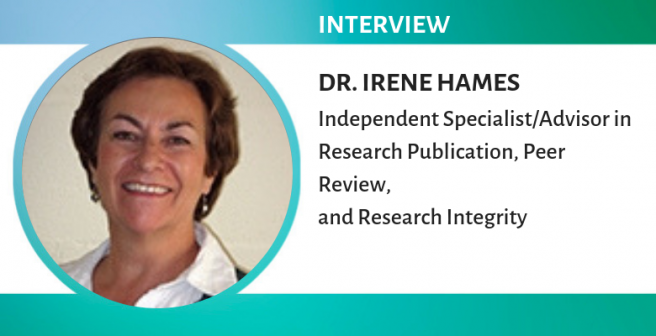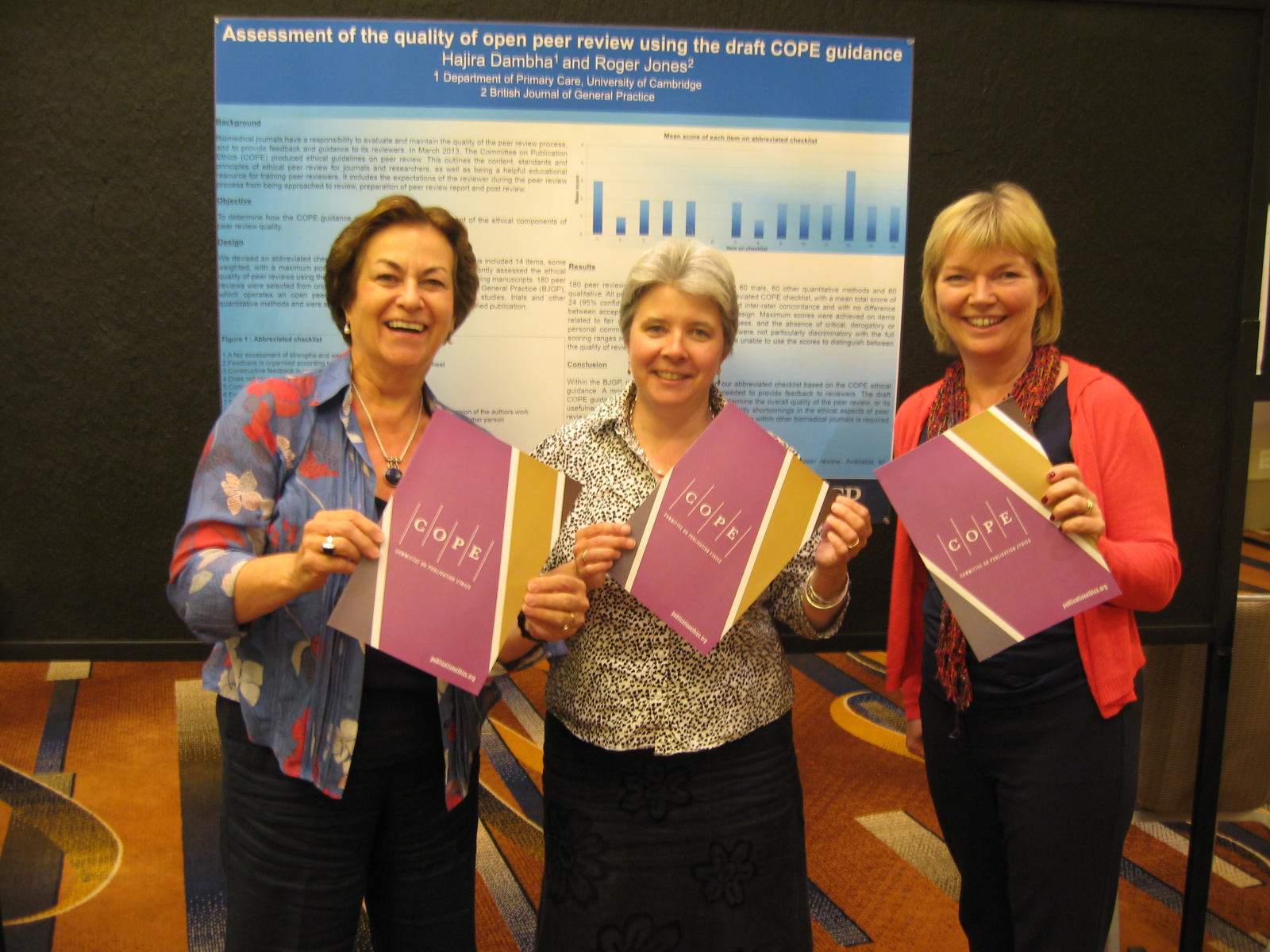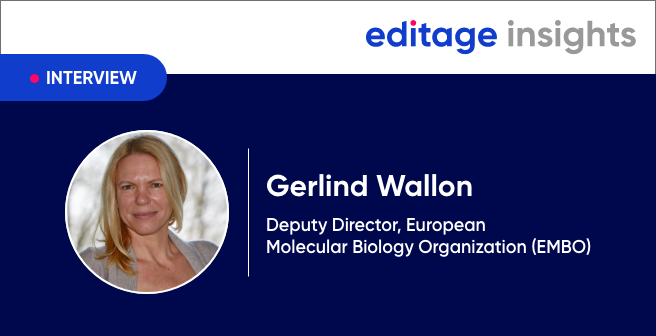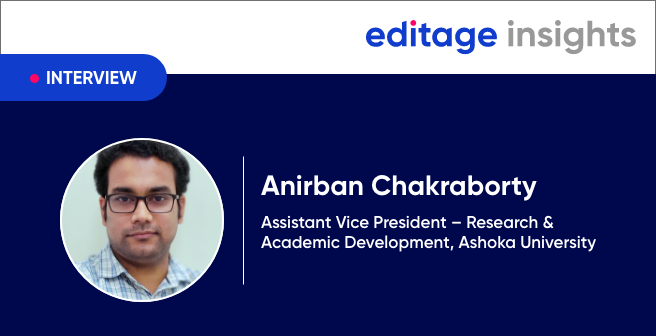Publication ethics problems don’t spare any discipline

With over 30 years’ experience in scholarly publishing, Dr. Irene Hames is an independent research-publication and peer-review specialist. She has also served as specialist advisor to the UK Parliamentary House of Commons Science and Technology Committee, and helped produce the report, Peer Review in Scientific Publications. She was the Founding Managing Editor for The Plant Journal, co-owned by Wiley Blackwell and the Society for Experimental Biology. Dr. Hames is also author of the book Peer Review and Manuscript Management in Scientific Journals, published by Wiley-Blackwell in association with ALPSP (the Association of Learned and Professional Society Publishers).
Dr. Hames was an active participant at COPE (the Committee on Publication Ethics) between 2010–13 as a Council Member, Director, and Trustee. She was Editor-in-Chief of COPE’s Ethical Editing and Editor of COPE Digest: Publication Ethics in Practice. She also initiated the COPE Case Taxonomy and produced the COPE Ethical Guidelines for Peer Reviewers.
![]() Currently, Dr. Hames holds advisory roles with a number of organizations such as Sense About Science and the International Society of Managing and Technical Editors. She holds a PhD in cell biology, is a Fellow of the Society of Biology, and sits on the Society’s Research Dissemination Committee.
Currently, Dr. Hames holds advisory roles with a number of organizations such as Sense About Science and the International Society of Managing and Technical Editors. She holds a PhD in cell biology, is a Fellow of the Society of Biology, and sits on the Society’s Research Dissemination Committee.
After obtaining a PhD in cell biology, what prompted you to join scholarly publishing?
A combination of circumstances. We’d relocated because my husband was offered and accepted a job in another part of the country. This coincided with starting a family so I wanted to do something that fitted in with both. I came across a small advert I’d kept from a few years before from a publisher in London looking for proofreaders and copyeditors and wrote to them, expressing interest and asking if I could visit to talk about possibilities. That led to a 10-year freelance career that developed and expanded into a number of interesting projects on scholarly books and journals. I found I loved the work. Then the opportunity came along to combine my scientific research background and publishing and editing expertise – I was approached to be involved in the set up and running of a new journal, The Plant Journal. I readily accepted and it proved to be a very exciting and rewarding time. I spent 20 years as the journal’s managing editor, running the editorial office and overseeing the journal’s growth and development, and it was a great pleasure and privilege to be able to work in such a stimulating environment and with so many wonderful people.
It was also a time of great change in publishing so there were many opportunities for innovation. When I started there was no internet, and so no email; everything was done on the phone and with paper copies of manuscripts and correspondence being sent by postal mail. The internet brought, first, online publishing, and then online manuscript submission, reviewing, and tracking, all of which not only improved efficiency and timeliness, but enabled reviewers from distant parts of the world to be used without time and financial penalties. I was also able to develop interests in the broader scholarly publishing community, writing a book on peer review and being involved with various organizations – for example, being on the founding board of directors of ISMTE (the International Society of Managing and Technical Editors) – and on the Advisory Council of Sense About Science, which works to dispel misconceptions and misleading claims about scientific and medical issues in the public domain, helping the public know what to believe and what to view with caution.
What is the Committee on Publication Ethics (COPE) and why did you join them?
COPE is a membership organization that provides advice to editors and publishers on all aspects of publication ethics and, in particular, how to handle cases of research and publication misconduct. It started in 1997 with just a few medical journal editors in London meeting to discuss ethical problems they were coming across. It now has over 9000 members and covers all scholarly disciplines. It’s an advisory body and supports its members by providing educational and practical resources, guidelines, and a forum where they can bring problem cases for discussion and advice. Many of COPE’s guidelines – for example the Retraction Guidelines – have become industry standards. COPE’s members are also expected to follow its Code of Conduct for Journal Editors. Increasingly, COPE is stimulating and facilitating discussions in the community on fast-moving or controversial areas in publication ethics. For example, in May 2011, it started publishing discussion documents, on topics such as on the sharing of information among editors-in-chief regarding possible misconduct, responding to anonymous whistle blowers, and how editors should respond to plagiarism.
My journal had been a member of COPE for many years and I’d regularly attended the annual seminars, at a time when the membership was predominantly biomedical. I knew that what COPE had to offer was very valuable and of equal importance and relevance to journals, such as mine, in the basic sciences – we were all seeing an increasing number of ethical problems. When I was approached to stand for Council, I felt very honoured and stood for election – all Council members are elected by the membership – and was successful. I was on the Council for 3 years, 2010–13, and in that time was involved in a number of sub-committees as well as for a time being Editor-in-Chief of COPE’s quarterly newsletter, Ethical Editing, and Editor of its successor, the monthly COPE Digest: Publication Ethics in Practice. I also originated the COPE Case Taxonomy and produced the COPE Ethical Guidelines for Peer Reviewers. Being part of the team overseeing and guiding the direction of an organization such as COPE takes quite bit of time and commitment (the work is voluntary), but is very rewarding and one way to give something back to the scholarly community. I continue to represent COPE as a member of its Alumni.

Left to right: Dr. Irene Hames, Dr. Ginny Barbour – COPE Chair, and Dr. Charlotte Haug – COPE Vice-chair, all holding COPE promotional materials produced by a subcommittee under Dr. Hames’s leadership. Photo taken at the International Congress on Peer Review and Biomedical Publication held in September 2013, Chicago, USA.
How has the industry evolved with respect to publication ethics?
All scholarly areas are now encountering the sorts of ethical problems biomedical journals have been seeing for many years; no subject discipline should think itself immune. Many journals are not only seeing more problems, the cases also seem to be becoming more complex. Dealing with ethical problems can take up a large amount of time. They also require delicate and diplomatic handling coupled with appropriate expertise. About 7 or 8 years ago, a number of publishers realized the benefits of providing their editors with the sort of support and advice that COPE offers, and membership increased tenfold, from about 350 to 3500 in the space of a year (2006-07). Many of COPE’s resources are free to all, but some are available only to its members – for example, being able to receive advice on individual problem cases, attend COPE seminars for free, and access the eLearning site – a valuable education resource that can provide guidance on many aspects of publication ethics for new editors and act as a refresher for the more experienced.
COPE has always striven to provide its members with the resources they need. The past few years have seen guidelines produced on retractions, on cooperation between research institutions and journals on research integrity cases, and for reviewers on ethics. A research project I led in 2013 (and worked on with fellow Council member Charon Pierson, COPE Chair Ginny Barbour, and Operations Manager Natalie Ridgeway) set out to identify the most common and demanding problems editors and publishers are bringing to COPE, to see if any trends could be identified that might help inform resource development. A new case taxonomy of 18 classification categories and 100 keywords was developed (now released: http://publicationethics.org/cope-case-taxonomy) and all the cases in COPE’s case database were reclassified and analyzed. Preliminary results were presented at the International Congress on Peer Review and Biomedical Publication in September 2013, and an update with keyword analysis at COPE’s European seminar in Brussels in March 2014.
Many problems with research integrity only come to light when the work is published or submitted for publication, so any increase in problems at the research level mean more problems for editors and journals to deal with. I know from experience that lack of knowledge and carelessness are the reasons for some ethical problems, but there are concerns that the increasing pressure on researchers may be leading some to engage in questionable behavior or to commit misconduct. The Nuffield Council on Bioethics is currently carrying out a survey on the culture of scientific research in the UK to find out how different features of the research environment are affecting the work and behaviour of scientists at all career stages and will include ethical aspects, so the results will be of great interest to the scholarly publishing community (http://nuffieldbioethics.org/research-culture).
Read the second and third part of this interview: “The peer review process: challenges and progress” and “Keeping the scholarly record sound — a journal editor’s duty.”



